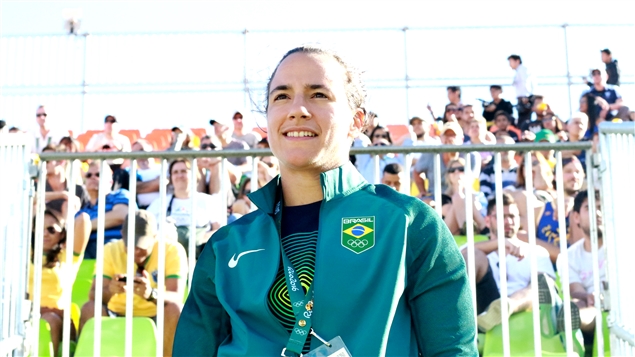The thing about firsts
If you’ve heard of the PyeongChang 2018 Winter Olympics, chances are you’ve also heard of Team USA ice skater Adam Rippon and freeskier Gus Kenworthy. They have received an unprecedented amount of media attention, as well as congratulations and encouragement from prominent celebrities and public figures, lauding their courage to be the “first openly gay Olympians”.
This hits so close to home. Don’t get me wrong, I am so proud of Adam and Gus as fellow out athletes and outspoken LGBTQ advocates; this will continue to be important until it is no longer newsworthy. LGBTQ visibility is essential to changing the status quo, to creating a world that respects and upholds equal rights and diversity.
At the same time, however, it makes me reflect on the double standard and discrimination that women are specifically confronted with in sport. Sexist beliefs demand that women maintain their femininity in the face of "masculinizing" aspects of sport; to be a successful athlete, you must be strong, courageous, aggressive, level-headed, powerful, able to surpass your physical limits and withstand pain. For centuries, women were barred from sports and discouraged to participate at all levels because sport threatens our delicate nature. As recently as 2014, a Russian coach said of ski jumping: “If a man gets a serious injury, it's still not fatal, but for women it could end much more seriously. Women have another purpose—to have children, to do housework, to create hearth and home."
These comments are not unique outliers. Even today, people question my decision to play rugby. They question whether I am not putting myself at risk, whether girls and women should really play this sport (if we want our daughters to play this sport); I am asked why I want to play a man’s sport.
As if this wasn’t enough, sexism and homophobia walk hand-in-hand. If I don’t fit into the neat box of “feminine woman” built by society, then I must want to be a man. After all, I did marry a woman, right? Women athletes are trying to be men, right? No surprise there are a bunch of lesbians playing sports, right?
This sexism-and-homophobia destructive combo affects men, too, which could explain the spotlight Adam and Gus find themselves in. Gay men are feminized like women, screams the underlying sexist, homophobic beliefs; this must mean they are weak, delicate, timid, unsuitable for sport. And suddenly, we have two outspoken and successful athletes shining a light on the undeniable truth of hard work, dedication, perseverance, determination, and performance. (Okay, maybe a little witchcraft, too.)
Adam and Gus are using their platforms in the best possible way, and I love them for it. They do not shy away from this issue, nor skirt around the current anti-LGBTQ stance of the US government. They are proudly, unabashedly themselves. Gus kissed his boyfriend on national television. All of this is so, so important. It will change the way that people begin to view and think about gay athletes. It will have an impact on kids and teens who come to terms with who they are: these young people have more role models to look up to, role models who are also a source of national pride.
But for the media to focus on Adam and Gus as the “first gay athletes” of Team USA, or of the Winter Olympics, invisibilizes gay female athletes and erases their (our) participation in other editions of the Olympic Games. Lyndsey D’Arcangelo says it all in her recent article, “Words matters here, and “gay” doesn’t denote gender. What might seem like a slight omission is actually a slight against gay women, because it negates the progress and visibility they have achieved for the LGBTQ+ community as Olympic athletes themselves.” To act like other queer athletes have never before participated in the Olympic Games is like taking several giant steps back in the course of history.
Perhaps this is laziness on the part of the media. Article titles that serve up hyperbolic statements are effective click-bait. Perhaps the world (or a good portion of it) is finally ready to accept and embrace gay athletes. In any case, one thing is certain. Innumerable athletes, Olympians and not, paved the way for Adam and Gus to make the most of this spotlight. We cannot forget those who came before us, as two-time Olympian Johnny Weir reminded us on Twitter. When leaps and bounds seem to happen in the course of humanity’s progress, more often than not, it is because we are standing on the shoulders of giants. By the time concrete advances are solidified--whether in laws, scientific theory, international human rights treaties, or mainstream beliefs--it is because so much work has happened on the ground over many years. These undercurrents of history grow and gain strength through the work of dedicated individuals and organizations to change hearts and minds, and eventually, change the tide.
So if I could say one thing to Adam and Gus, it would be this: thank you so much for continuing this fight. Thank you for being you, for not backing down, for using your voices. And remember that we--gay and queer female athletes-- are with you, too. We are in this together.





